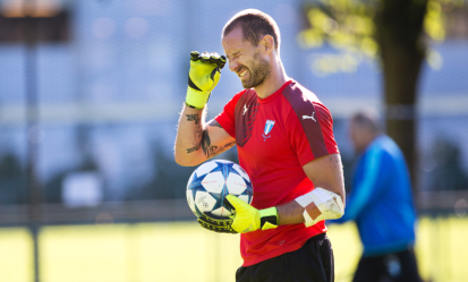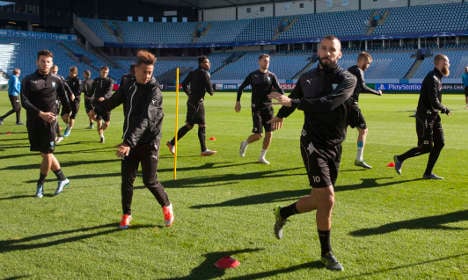Real Madrid are currently En-Route Malmo. #HalaMadrid #UCL pic.twitter.com/K1PBpFygnR
— Cristiano Ronaldo (@TheCRonaldoFan) September 29, 2015

Malmö's goalie Johan Wiland. Photo: Andreas Hillergren/TT
UPDATED: Swedish champions Malmö take on Real Madrid in the Champions League on Wednesday. The Spanish giants are confident, but could the Nordic underdogs show up their southern European rivals as they compete for the first time?

Real Madrid are currently En-Route Malmo. #HalaMadrid #UCL pic.twitter.com/K1PBpFygnR
— Cristiano Ronaldo (@TheCRonaldoFan) September 29, 2015
